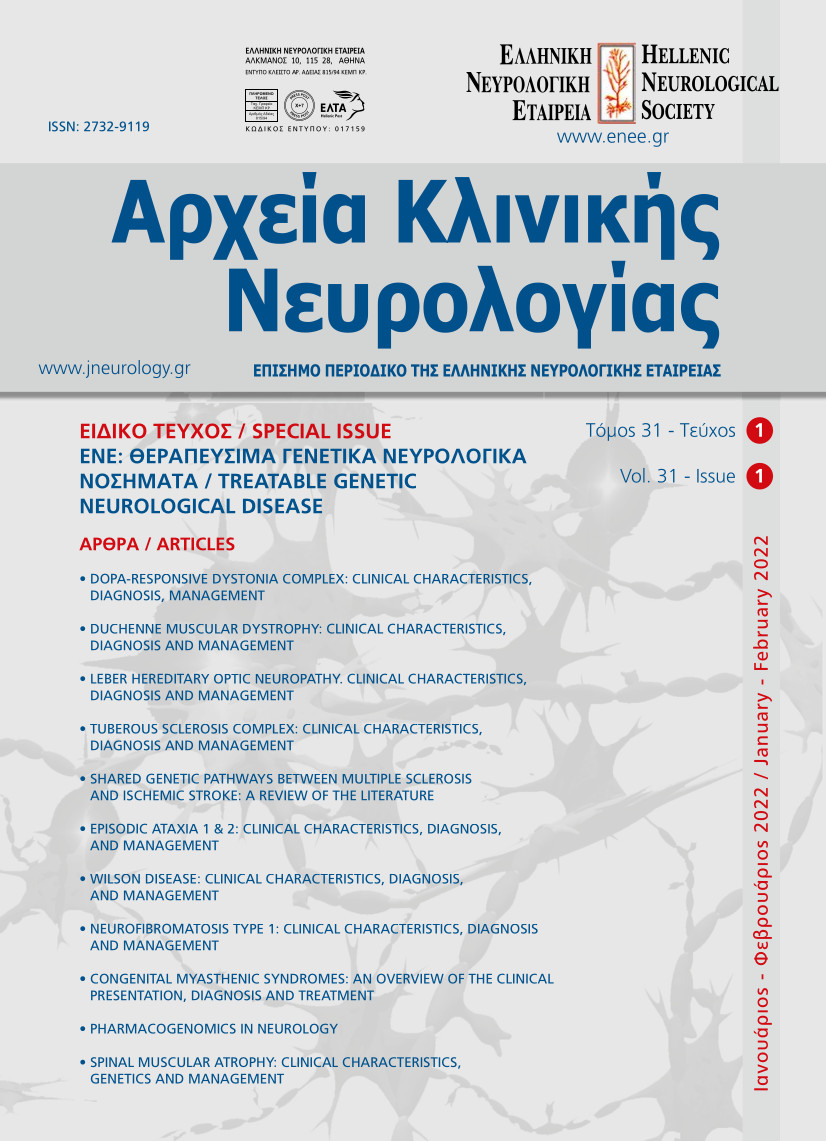PHARMACOGENOMICS IN NEUROLOGY
Λέξεις-κλειδιά:
precision medicine, omic technologies, pharmacogenomics;, genetic variations, CYP2C19 testing, apolipoprotein EΠερίληψη
Precision medicine is an emerging medical approach which aims to individualize therapies in patients with
complex, multifactorial disease in order to increase drug effectiveness and prevent adverse drug reactions.
Among high-throughput -‘omic technologies (genomics, proteomics, metabolomics), pharmacogenomics
investigates the application of genomics to personalize drug selection, according to the patient’s genetic
traits. Genetic variations influence the pharmacokinetic and pharmacodynamic profile of many therapies
in different fields in neurology, such as immune-mediated disease, neurodegenerative disease and ischemic
stroke. Until now, available clinically useful pharmacogenomic biomarker does not exist to distinguish
between responders and non-responders regarding MS treatments. In patients with stroke who receive
clopidogrel, CYP2C19 testing in clinical practice has not been established yet. In Parkinson’s disease, MTHFR
gene mutations may be correlated with higher incidence of hyperhomocysteinemia due to L-dopa
treatment. Finally, apolipoprotein E (APOE) gene has been linked with Alzheimer’s disease pathogenesis
and is regarded as a reference gene in several pharmacogenetic studies. In the era of precision medicine,
educating clinicians on pharmacogenomics may assist with the implementation of genetic information in
the clinical practice, thus enhancing genetically-guided treatment decisions.


